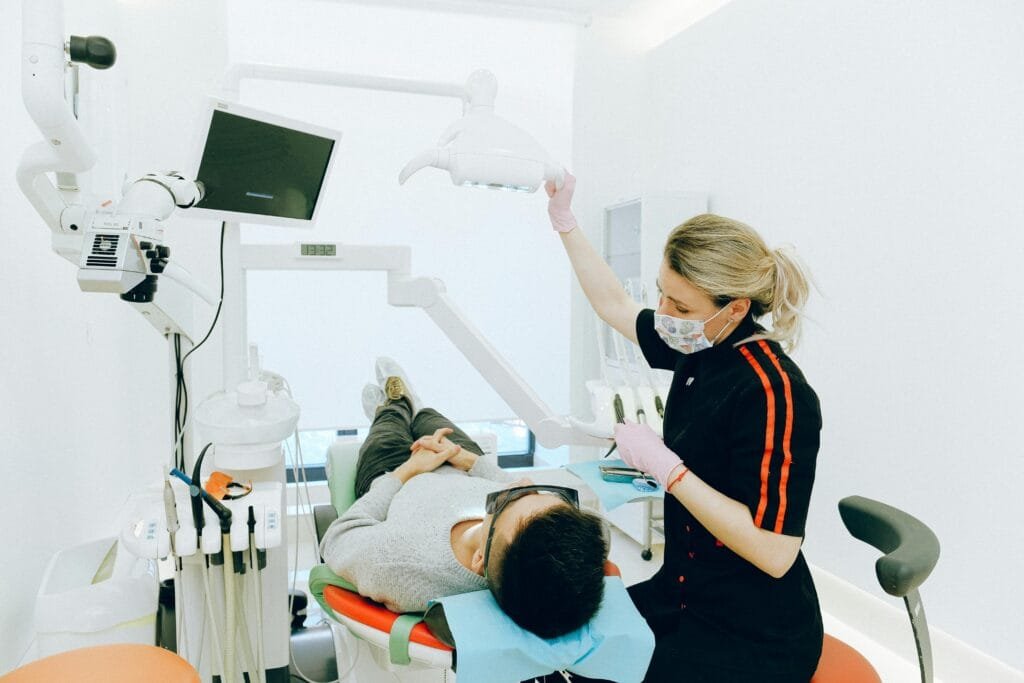Oral health plays a far more significant role in overall well-being than many people realize. While brushing and flossing are often viewed as routine habits for maintaining a bright smile, their impact extends much deeper. A healthy mouth can serve as a foundation for a healthy body, while neglecting dental care may contribute to various systemic health problems. For anyone seeking professional support to maintain optimal oral hygiene, consulting a qualified dentist cairns professional can make a meaningful difference.

Understanding the Link Between the Mouth and Body
The mouth is often called the gateway to the body — and for good reason. It is home to countless bacteria, most of which are harmless. However, when oral hygiene is poor, harmful bacteria can multiply, leading to infections such as tooth decay and gum disease. These infections may allow bacteria to enter the bloodstream, triggering inflammation and potentially influencing conditions throughout the body.
Inflammation is the body’s natural defense mechanism. Still, when it becomes chronic — as can occur with untreated gum disease — it can contribute to or worsen health conditions like heart disease, diabetes, and respiratory illnesses. This interconnection highlights that taking care of your teeth and gums is not just about aesthetics; it’s an essential part of preventive health care.
Oral Health and Heart Disease
One of the most widely researched links between oral and systemic health is the association between gum disease (periodontitis) and cardiovascular disease. Studies suggest that the bacteria associated with gum infections can enter the bloodstream and cause inflammation in blood vessels, which may lead to plaque buildup and increased risk of heart attacks or strokes.
While researchers continue to study the exact mechanisms, it is widely agreed that maintaining good oral hygiene can reduce these risks. Brushing twice daily, flossing, and regular dental checkups can significantly reduce inflammation and help protect both the mouth and the heart.
The Relationship Between Oral Health and Diabetes
The connection between oral health and diabetes is powerful — and bidirectional. People with diabetes are more susceptible to gum disease because elevated blood sugar levels can weaken the immune system, making it harder to fight bacterial infections. On the other hand, severe gum disease can make it more difficult for the body to control blood sugar, creating a dangerous cycle.
Good oral care, combined with regular monitoring from a dental professional, can help manage these risks. For diabetic patients, maintaining a clean and healthy mouth isn’t just about avoiding cavities; it’s an important part of managing their overall condition.
Impact on Respiratory and Digestive Health
Poor oral hygiene can also affect respiratory health. Bacteria from infected teeth and gums can be inhaled into the lungs, potentially leading to respiratory infections, pneumonia, or worsening of chronic conditions like chronic obstructive pulmonary disease (COPD). Similarly, the digestive system begins with the mouth. Chewing food properly is essential for digestion, and dental problems like missing or painful teeth can interfere with this process, affecting nutrition and gut health.
The Psychological Benefits of Good Oral Health
Beyond physical health, oral hygiene plays an important role in mental and emotional well-being. People who feel confident about their smile tend to experience higher self-esteem, which positively impacts social interactions and professional opportunities. Conversely, chronic dental pain or cosmetic concerns can lead to anxiety, embarrassment, and even depression.
A professional dentist cairns expert can provide not only preventive and restorative care but also cosmetic treatments that help restore confidence and improve quality of life.
Maintaining Optimal Oral Health
Achieving and maintaining a healthy mouth requires consistency and professional guidance. Here are some key practices that support both oral and overall health:
- Brush twice daily using fluoride toothpaste to remove plaque and bacteria.
- Floss or use interdental brushes to clean between teeth where a toothbrush cannot reach.
- Limit sugary foods and drinks, which feed bacteria that cause cavities.
- Stay hydrated to promote saliva production, which naturally protects teeth and gums.
- Schedule regular dental visits for professional cleaning and early detection of potential problems.
These simple but powerful habits form the foundation of a healthy lifestyle that benefits the entire body.
Conclusion
The connection between oral health and overall health is undeniable. A clean and healthy mouth not only prevents tooth decay and gum disease but also supports heart health, blood sugar control, respiratory function, and even emotional well-being. Oral care should never be seen as a separate part of personal health; it’s an integral component of total wellness.
Regular visits to a trusted dental professional, combined with consistent daily hygiene, ensure that your smile and your body remain strong, resilient, and vibrant for years to come.
